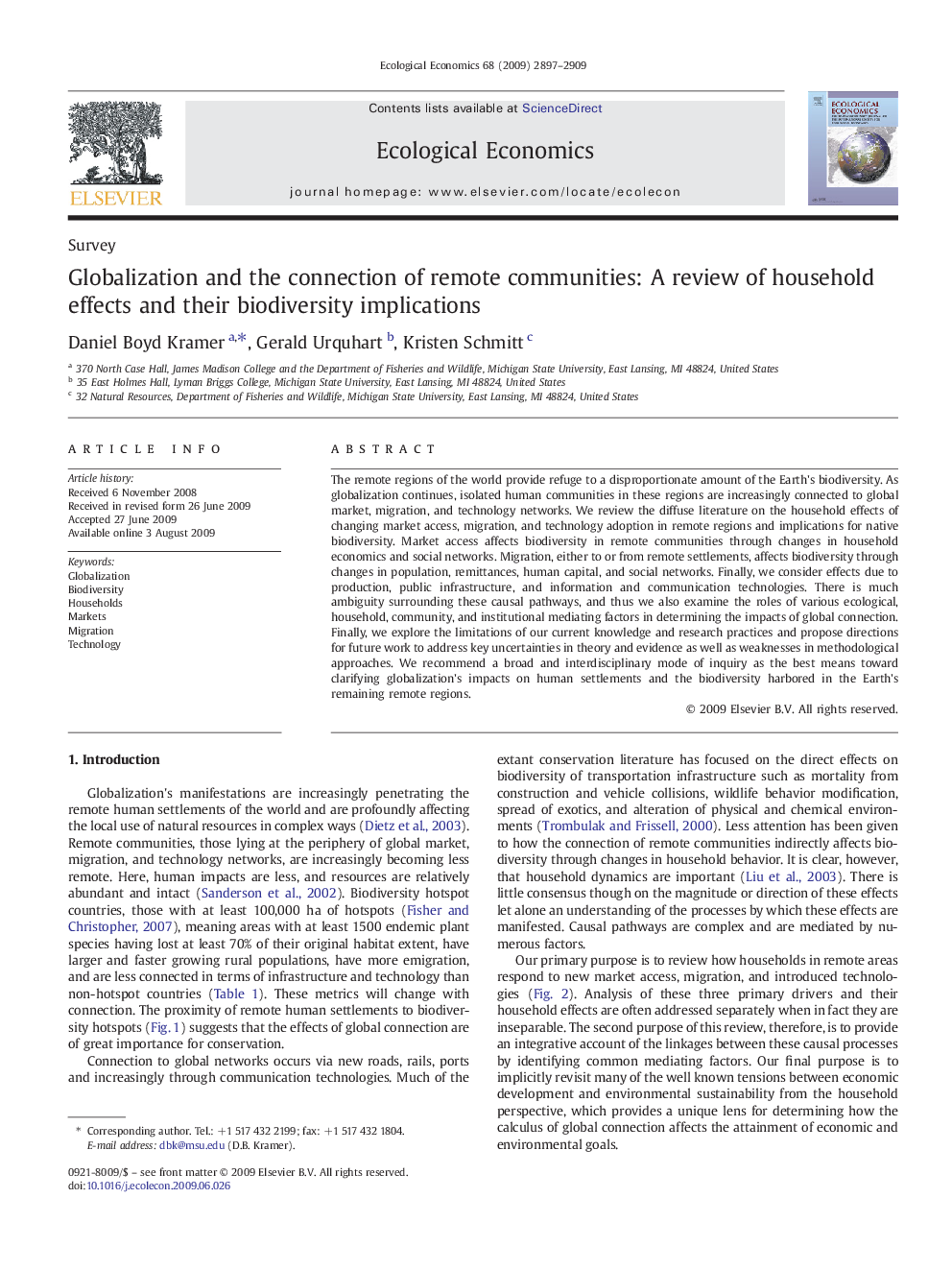| Article ID | Journal | Published Year | Pages | File Type |
|---|---|---|---|---|
| 5051199 | Ecological Economics | 2009 | 13 Pages |
The remote regions of the world provide refuge to a disproportionate amount of the Earth's biodiversity. As globalization continues, isolated human communities in these regions are increasingly connected to global market, migration, and technology networks. We review the diffuse literature on the household effects of changing market access, migration, and technology adoption in remote regions and implications for native biodiversity. Market access affects biodiversity in remote communities through changes in household economics and social networks. Migration, either to or from remote settlements, affects biodiversity through changes in population, remittances, human capital, and social networks. Finally, we consider effects due to production, public infrastructure, and information and communication technologies. There is much ambiguity surrounding these causal pathways, and thus we also examine the roles of various ecological, household, community, and institutional mediating factors in determining the impacts of global connection. Finally, we explore the limitations of our current knowledge and research practices and propose directions for future work to address key uncertainties in theory and evidence as well as weaknesses in methodological approaches. We recommend a broad and interdisciplinary mode of inquiry as the best means toward clarifying globalization's impacts on human settlements and the biodiversity harbored in the Earth's remaining remote regions.
